Combatting Self-Doubt: Must-Read Imposter Syndrome Books
By Marco Franzoni • June 30, 2023
Key Takeaways
- Literature plays a significant role in understanding and overcoming Imposter Syndrome.
- Books on this topic come in various forms including self-help books, workbooks, memoirs, confidence and leadership books, CBT books, and those promoting self-compassion.
- Self-compassion is a vital aspect of overcoming Imposter Syndrome.
- It's important to seek support when dealing with Imposter Syndrome.

Do you ever feel like a fraud, afraid that others might discover you're not as competent as they think you are? If this resonates with you, rest assured you're not alone. Millions around the globe grapple with this pervasive, insidious feeling of self-doubt, commonly known as Imposter Syndrome. It's that nagging voice in your head that downplays your accomplishments and magnifies your fears and insecurities.
Overcoming imposter syndrome is more than possible; it's within your grasp. It all starts with understanding its nature, recognizing its presence, and committing to effective strategies that foster self-confidence and acceptance. This journey often requires exploration into personal stories, practical exercises, and time-tested wisdom. Hence, literature, specifically imposter syndrome books, can serve as invaluable guides.
In this article, we delve into an extensive list of self-help guides, workbooks, and memoirs – all aimed at empowering you to combat the insecurity that can shackle your potential. We will navigate the path towards self-compassion, equipping you with insights, strategies, and narratives that have helped countless individuals break free from the chains of self-doubt and fear. From memoirs that offer personal stories to workbooks filled with exercises and journal prompts for self-exploration, these resources provide you with tools and inspiration to beat imposter syndrome and reclaim your self-assurance.
Stay with us as we explore this enlightening journey towards confidence, accomplishment, and leadership. Get ready to step out of the shadows of doubt and embrace the light of your true potential. Now, let's venture into these must-read books that help overcome imposter syndrome and foster a mindset shift towards self-improvement.
Looking to deepen your self-exploration and healing journey? Check out our recommended top 10 Shadow Work books that offer valuable insights and transformative practices.
Join our Newsletter
Transform your career with our personal growth insights. Get one valuable tip right in your inbox every Saturday morning.
The Role of Literature in Understanding Imposter Syndrome
Literature plays a critical role in demystifying the complex landscape of human psychology, and this couldn't be truer for understanding and overcoming imposter syndrome. Books on imposter syndrome provide a comprehensive view of this phenomenon, presenting it not merely as a personal quirk but as a widespread issue that affects many, irrespective of their achievements or social status.
Reading, by its very nature, promotes empathy. When we dive into the pages of self-help guides or engage with deeply personal memoirs, we immerse ourselves in others' experiences. This not only broadens our perspectives but also fosters a sense of connectedness. Understanding that even successful individuals can experience self-doubt and fear helps normalize these feelings, making them less overwhelming and more manageable.
Moreover, the diversity of imposter syndrome books ensures that every reader can find a resource that resonates with their specific needs and preferences. Self-help guides like The Confidence Gap provide practical strategies to combat self-doubt, offering readers an action-oriented approach to overcoming their fears.
Workbooks, on the other hand, like Own Your Greatness: Overcome Impostor Syndrome, give readers a hands-on method to delve into their psyche, uncover their triggers, and devise personal strategies to beat imposter syndrome.
Memoirs such as Educated offer intimate accounts of individuals who have battled with imposter syndrome, providing readers with relatable narratives and powerful messages of resilience and triumph.
To put it succinctly, literature on imposter syndrome acts as a beacon of understanding and empathy, a lighthouse guiding readers away from the rocky shores of self-doubt and towards the open waters of self-confidence and self-acceptance. Through a diverse range of formats, from self-help guides and workbooks to memoirs and narratives, these resources offer a multifaceted approach to overcoming imposter syndrome, enhancing our understanding, empathy, and capacity to conquer our insecurities.
Self-help Books for Overcoming Imposter Syndrome
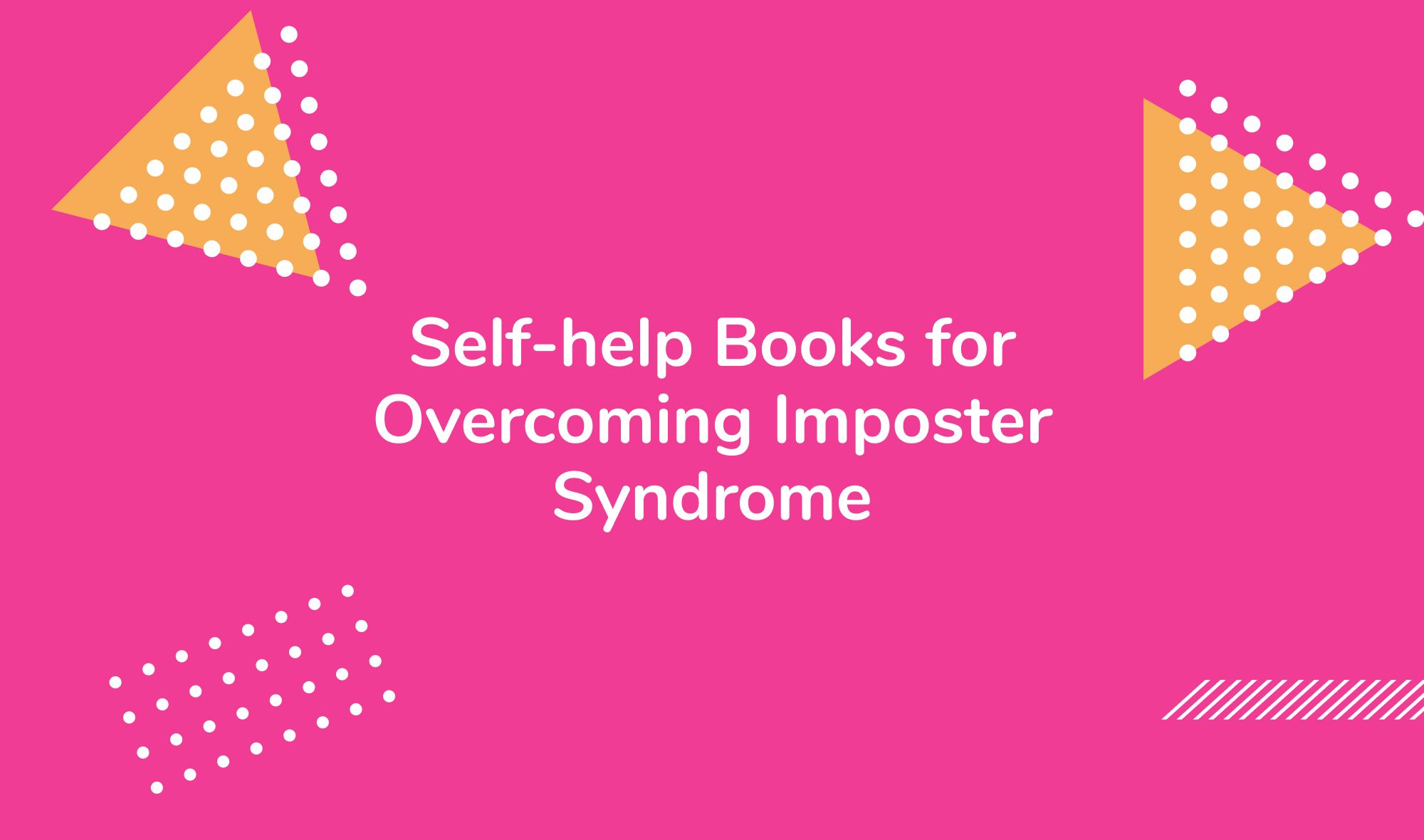
Self-help books are a cornerstone for personal development, offering readers a wealth of information and practical strategies to overcome challenges such as imposter syndrome. These resources typically entail a mixture of psychological insights, personal anecdotes, and actionable advice that help readers understand their self-doubt and, crucially, learn to combat it.
Below is a list of must-read self-help books that provide illuminating perspectives on overcoming imposter syndrome:
- "The Confidence Gap": A practical, down-to-earth guide by Russ Harris that uses cognitive-behavioral therapy techniques to help readers overcome self-doubt and build genuine self-confidence.
- "Own Your Greatness: Overcome Impostor Syndrome": A highly interactive workbook by Lisa and Richard Orbe-Austin that provides exercises and journal prompts to help readers identify their imposter syndrome triggers and counteract them effectively.
- "The Secret Thoughts of Successful Women: Why Capable People Suffer from Impostor Syndrome and How to Thrive in Spite of It": A comprehensive exploration by Valerie Young that reveals the various manifestations of imposter syndrome and outlines practical strategies to beat it.
- "The Imposter Cure: How to Stop Feeling Like a Fraud and Escape the Mind-Trap of Imposter Syndrome": In this book, Dr. Jessamy Hibberd provides a compassionate look into imposter syndrome, offering readers cognitive behavioral therapy techniques to navigate self-doubt and celebrate their accomplishments.
- "Yes, You Are Good Enough: How to Overcome Imposter Syndrome, Embrace Your Success and Love Your Life": In this book, businesswoman and entrepreneur Mikaela Jackson empowers readers to confront their imposter syndrome head-on and overcome perfectionism to embrace their success and lead a fulfilling life.
Join our Newsletter
Transform your career with our personal growth insights. Get one valuable tip right in your inbox every Saturday morning.
Whether you're looking to understand the psychology behind imposter syndrome or searching for practical strategies to overcome self-doubt, these self-help books offer valuable insights and actionable advice. By utilizing the lessons within these pages, readers can journey from a place of insecurity to one of self-assurance, conquering imposter syndrome along the way.
Workbooks to Beat Imposter Syndrome
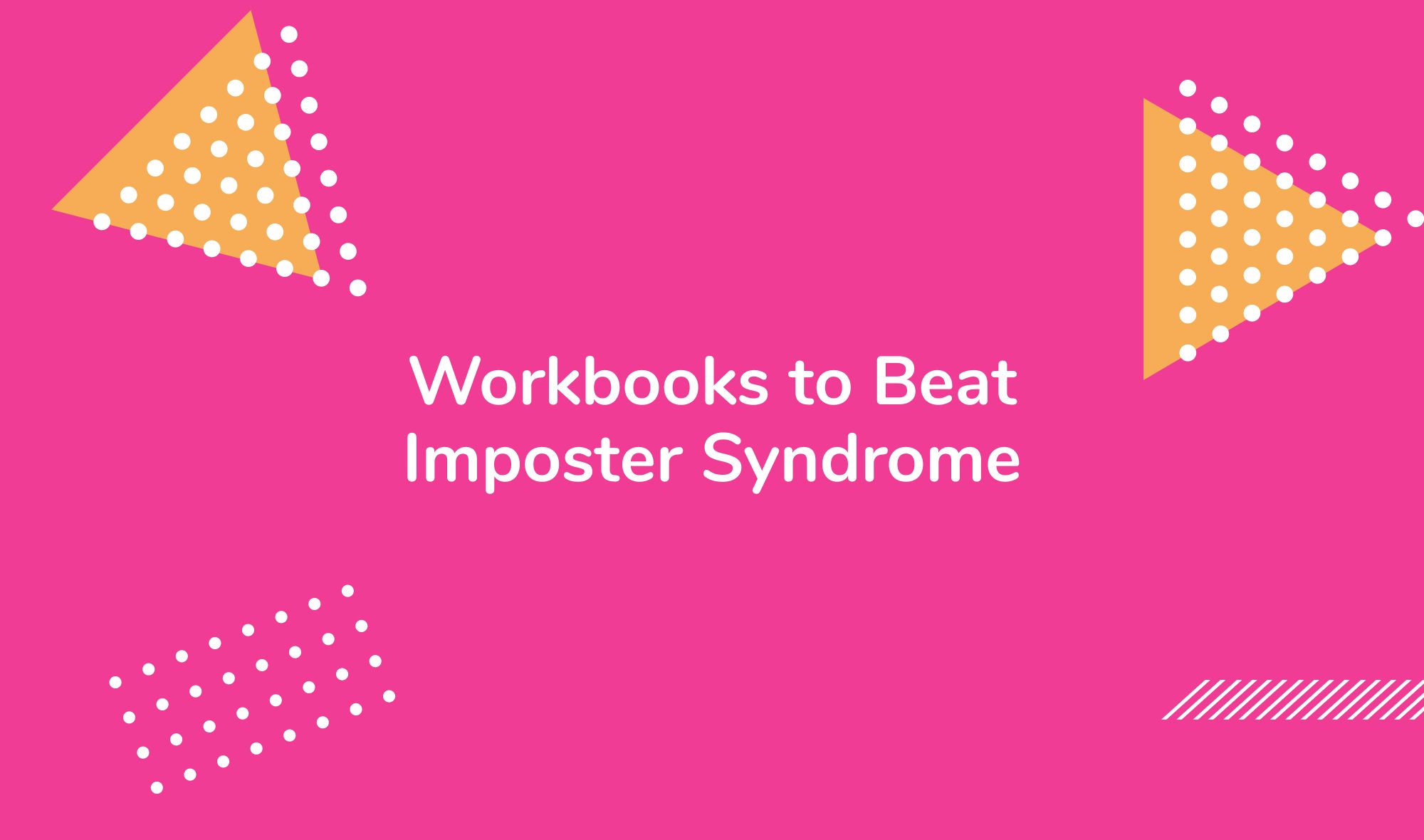
Workbooks present a uniquely valuable tool in the battle against imposter syndrome. By incorporating interactive learning and guided application, they allow readers to delve deeper into their understanding of the phenomenon and practice actionable strategies. The benefits of workbooks include tailored exercises, guided self-reflection, and journal prompts to create a more personalized and immersive learning experience.
Here are some recommended workbooks specifically designed to help you overcome imposter syndrome:
- "The Imposter Syndrome Remedy: A 30-day Action Plan to Stop Feeling Like a Fraud": Author A.P. Grow introduces a systematic approach to overcome imposter syndrome with daily exercises that lead to self-discovery and growth.
- "Imposter Syndrome: A Workbook to Help You Overcome Self-Doubt, Build Self-Compassion, and Embrace Your Value": This workbook by psychologist Dr. Lisa Orbe-Austin offers an evidence-based approach to dismantling the imposter experience with practical exercises and strategies.
- "Own Your Greatness: Overcome Impostor Syndrome, Beat Self-Doubt, and Succeed in Life": This workbook by Lisa and Richard Orbe-Austin (also mentioned in our self-help book section) is worth mentioning again for its interactive elements, providing ample exercises and journal prompts to actively combat imposter syndrome.
- "The Impostor Syndrome Workbook: 10 Proven Strategies to Overcome Self-Doubt and Thrive with Confidence": This workbook by Dr. Susan Wornick offers readers practical strategies and self-reflection exercises to help them understand and conquer their imposter syndrome.
- "Overcoming Impostor Syndrome: Ten Strategies to Stop Feeling Like a Fraud at Work": Authors Elizabeth Cox and Jessica Vechakul provide ten unique strategies, each with its own exercises and self-reflection prompts, to help readers identify and overcome their imposter syndrome.
By engaging with these workbooks, you not only read about imposter syndrome but also actively partake in your journey to overcome it. This active participation can create lasting changes, helping you to break free from the cycle of self-doubt and fear of being exposed as a fraud. These guides and exercises provide a practical and targeted approach to understand and tackle your personal manifestation of imposter syndrome. If you wish to further your understanding and enhance self-awareness, consider exploring these 45 self-reflection questions to nurture your mind, body, and soul.
Memoirs Dealing with Imposter Syndrome
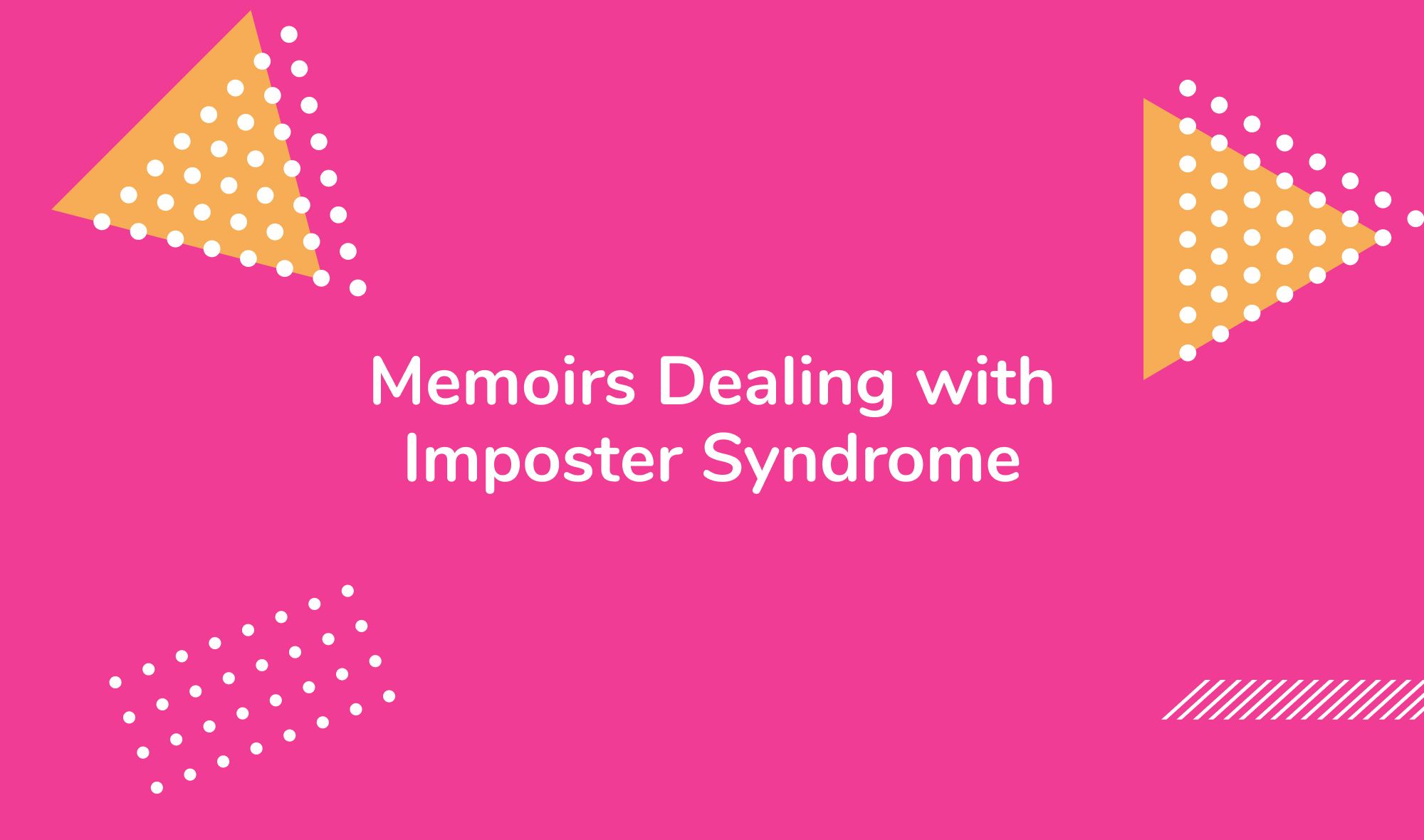
Memoirs and personal stories dealing with imposter syndrome play a critical role in broadening our understanding of this psychological phenomenon. By reading about others' life experiences, we not only gain insight into their battles with imposter syndrome but also feel less alone in our struggles. It's powerful to realize that many successful individuals, just like us, grapple with the same fears of being "found out" or not feeling good enough.
Here are some impactful memoirs that feature the authors' personal experiences with imposter syndrome:
- "Educated" by Tara Westover: Westover's journey from being born into a survivalist family in rural Idaho to earning a PhD from Cambridge University is nothing short of remarkable. Throughout her memoir, she confronts imposter syndrome, particularly as she navigates academia.
- "Year of Yes: How to Dance It Out, Stand In the Sun and Be Your Own Person" by Shonda Rhimes: Despite being a successful television producer and writer, Rhimes candidly discusses her experience with imposter syndrome, providing insights and inspiration for readers.
- "The Glass Castle" by Jeannette Walls: Walls shares her journey from a dysfunctional and impoverished childhood to a successful career as a journalist in New York City, wrestling with feelings of not belonging and imposter syndrome along the way.
- "Becoming" by Michelle Obama: The former First Lady of the United States is not immune to imposter syndrome, as she eloquently illustrates in her memoir. Her honest portrayal of her journey offers a relatable account for many readers.
- "Lab Girl" by Hope Jahren: This memoir shares Jahren's experiences as a woman in science, grappling with self-doubt and imposter syndrome in a largely male-dominated field.
These memoirs not only provide a firsthand account of dealing with imposter syndrome but also offer hope, illustrating how each of these individuals successfully navigated their struggles and achieved their goals. Reading such personal stories allows us to draw strength from their experiences and apply the lessons learned to our own lives.
Confidence and Leadership Books to Combat Imposter Syndrome

For individuals struggling with imposter syndrome, books focusing on confidence-building and leadership can be invaluable. They not only provide practical guidance on how to strengthen self-assurance and belief in oneself, but they also address essential leadership skills such as management and guidance. These resources can aid in reframing self-doubt, facilitating personal growth, and enhancing leadership capabilities.
Here are some highly recommended books on confidence and leadership that can help combat imposter syndrome:
- "The Confidence Code: The Science and Art of Self-Assurance—What Women Should Know" by Katty Kay and Claire Shipman: Kay and Shipman delve into the concept of confidence, its importance, and practical ways to develop it. This book can be particularly beneficial for women dealing with imposter syndrome.
- "Daring Greatly: How the Courage to Be Vulnerable Transforms the Way We Live, Love, Parent, and Lead" by Brené Brown: Brené Brown encourages embracing vulnerability to build self-assurance and effective leadership. Her insights can help individuals confront imposter syndrome head-on.
- "The Art of Possibility: Transforming Professional and Personal Life" by Rosamund Stone Zander and Benjamin Zander: This book promotes a shift in perspective to view life's challenges as possibilities, aiding in confidence and leadership development.
- "Lean In: Women, Work, and the Will to Lead" by Sheryl Sandberg: Sandberg provides valuable advice on women's leadership and self-assurance in the corporate world, offering relatable experiences with imposter syndrome.
- "The Charisma Myth: How Anyone Can Master the Art and Science of Personal Magnetism" by Olivia Fox Cabane: Cabane's book is a guide to developing charisma—a useful tool in boosting confidence and leadership abilities.
By leveraging the insights in these books, readers can gain the tools to navigate and overcome their own imposter syndrome, fostering a stronger sense of self-assurance and enhancing their leadership potential.
Cognitive Behavioral Therapy Books for Imposter Syndrome
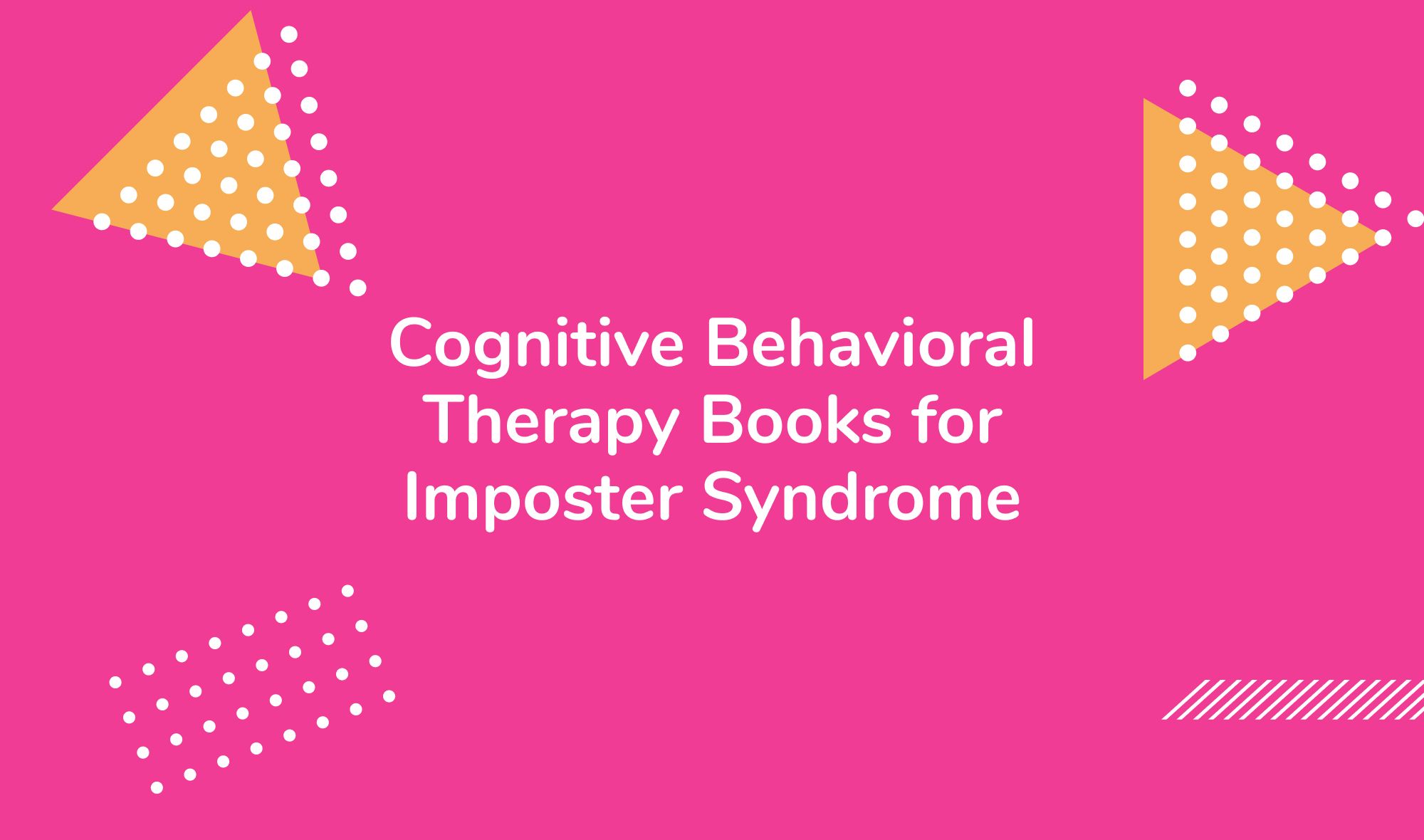
Cognitive Behavioral Therapy (CBT) is a type of psychotherapy that has proven to be extremely effective in treating a range of mental health issues, including imposter syndrome. By applying CBT techniques, individuals can reframe negative thought patterns, inducing a mindset shift and fostering self-improvement. This therapeutic approach targets destructive beliefs, empowering individuals to replace them with healthier, more positive self-perceptions.
Here are several top-rated CBT books that provide valuable guidance in managing imposter syndrome:
- "Feeling Good: The New Mood Therapy" by David D. Burns: Dr. Burns introduces effective CBT techniques for addressing negative emotions and enhancing mood. His teachings can be applied to combat imposter syndrome and its related self-doubt.
- "Cognitive Behavioral Therapy: Techniques for Retraining Your Brain" by Jason M. Satterfield: Satterfield's guide offers practical and applicable CBT methods for retraining the brain and modifying damaging thought processes, essential for dealing with imposter syndrome.
- "The CBT Handbook: A Comprehensive Guide to Using CBT to Overcome Depression, Anxiety, Stress, Low Self-Esteem and Anger" by Pamela Myles and Roz Shafran: As a comprehensive guide, this book encompasses a range of CBT strategies to combat depression, anxiety, low self-esteem, and anger—all aspects linked to imposter syndrome.
- "Mind Over Mood, Second Edition: Change How You Feel by Changing the Way You Think" by Dennis Greenberger and Christine A. Padesky: In this book, Greenberger and Padesky demonstrate how altering our thought patterns can lead to significant improvements in our feelings and behaviors, beneficial for those grappling with imposter syndrome.
- "Cognitive Behavioural Therapy Workbook For Dummies" by Rhena Branch and Rob Willson: This workbook provides a hands-on approach to learning CBT techniques, making it an effective tool for individuals wanting to actively work on overcoming imposter syndrome.
Using the resources and techniques found in these books, readers can embark on a journey to alter their thought patterns, ultimately transforming the way they perceive themselves and their abilities.
Importance of Self-compassion in Overcoming Imposter Syndrome
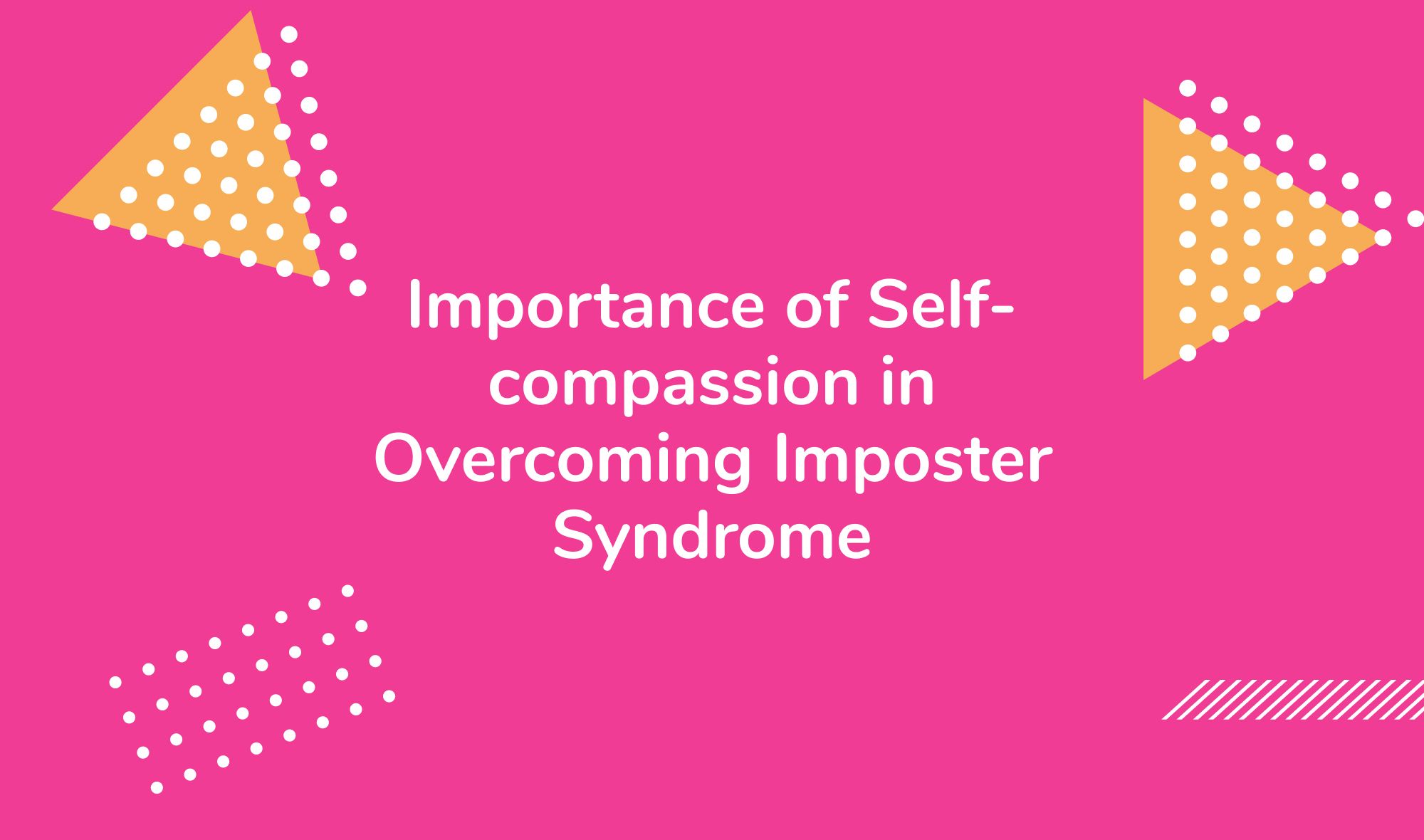
Self-compassion is a pivotal element in overcoming imposter syndrome. The journey towards combating imposter feelings calls for self-care, self-kindness, and self-acceptance. It's about fostering an understanding and nonjudgmental attitude towards one's self-doubts and perceived inadequacies. Essentially, it allows individuals to replace their internal critical voice with a more supportive one, enhancing emotional resilience and personal well-being.
The following books can greatly assist in promoting self-compassion, aiding in the process of overcoming imposter syndrome:
- "Self-Compassion: The Proven Power of Being Kind to Yourself" by Kristin Neff: In this book, Neff effectively explains why self-compassion is a crucial component of mental health, providing practical strategies for readers to cultivate this attribute.
- "The Mindful Path to Self-Compassion: Freeing Yourself from Destructive Thoughts and Emotions" by Christopher K. Germer: Germer demonstrates how mindfulness and self-compassion can work together to foster emotional well-being, an essential read for those battling imposter syndrome.
If you're inspired by this, check out our comprehensive guide on why you should learn to love yourself first.
- "Radical Acceptance: Embracing Your Life With the Heart of a Buddha" by Tara Brach: In this insightful book, Brach teaches the power of self-acceptance and compassion through a blend of Western psychology and Eastern spirituality.
- "The Gifts of Imperfection: Let Go of Who You Think You're Supposed to Be and Embrace Who You Are" by Brené Brown: Brown's book provides a blueprint for engaging with the world from a place of worthiness, promoting self-acceptance and kindness.
- "Lovingkindness: The Revolutionary Art of Happiness" by Sharon Salzberg: Salzberg explores the practice of "metta" or lovingkindness, a tool to increase love and compassion for oneself and others, helpful for overcoming feelings of fraudulence.
Through the practice of self-compassion and utilizing the wisdom found in these books, one can make significant strides in mitigating the effects of imposter syndrome, leading to a more authentic and accepting self-perception.
Conclusion
Overcoming Imposter Syndrome is a journey, one that can be greatly aided by the guidance, shared experiences, and practical tools found within these books. From memoirs to workbooks, and self-help guides to cognitive behavioral therapy resources, each category provides unique insights into the phenomenon of Imposter Syndrome and the ways to conquer it.
Remember, the core of this journey is the cultivation of self-compassion. You can find another effective approach to self-acceptance by exploring your "Shadow Self", a concept that encourages recognizing and integrating less accepted aspects of your personality.
Kindness towards oneself is a crucial element that aids in the transformation of self-perception. By nurturing this attribute, you're likely to find it easier to navigate through feelings of self-doubt and unworthiness.
However, don't forget that it's okay to seek support. If you're struggling with Imposter Syndrome, reaching out to mental health professionals can be highly beneficial. Remember, you are not alone, and there's plenty of help available.
We encourage you to explore these books, and start or continue your journey towards overcoming Imposter Syndrome. As you do, we'd love to hear about your experiences and your favorite books on the topic. Feel free to share your thoughts and recommendations in the comments section. Remember, by sharing your story, you could be helping someone else feel a little less alone in their struggles.
Embrace the journey, celebrate your achievements, and remember: you are more than enough just as you are.
Read more about: Imposter Syndrome, Life Coaching